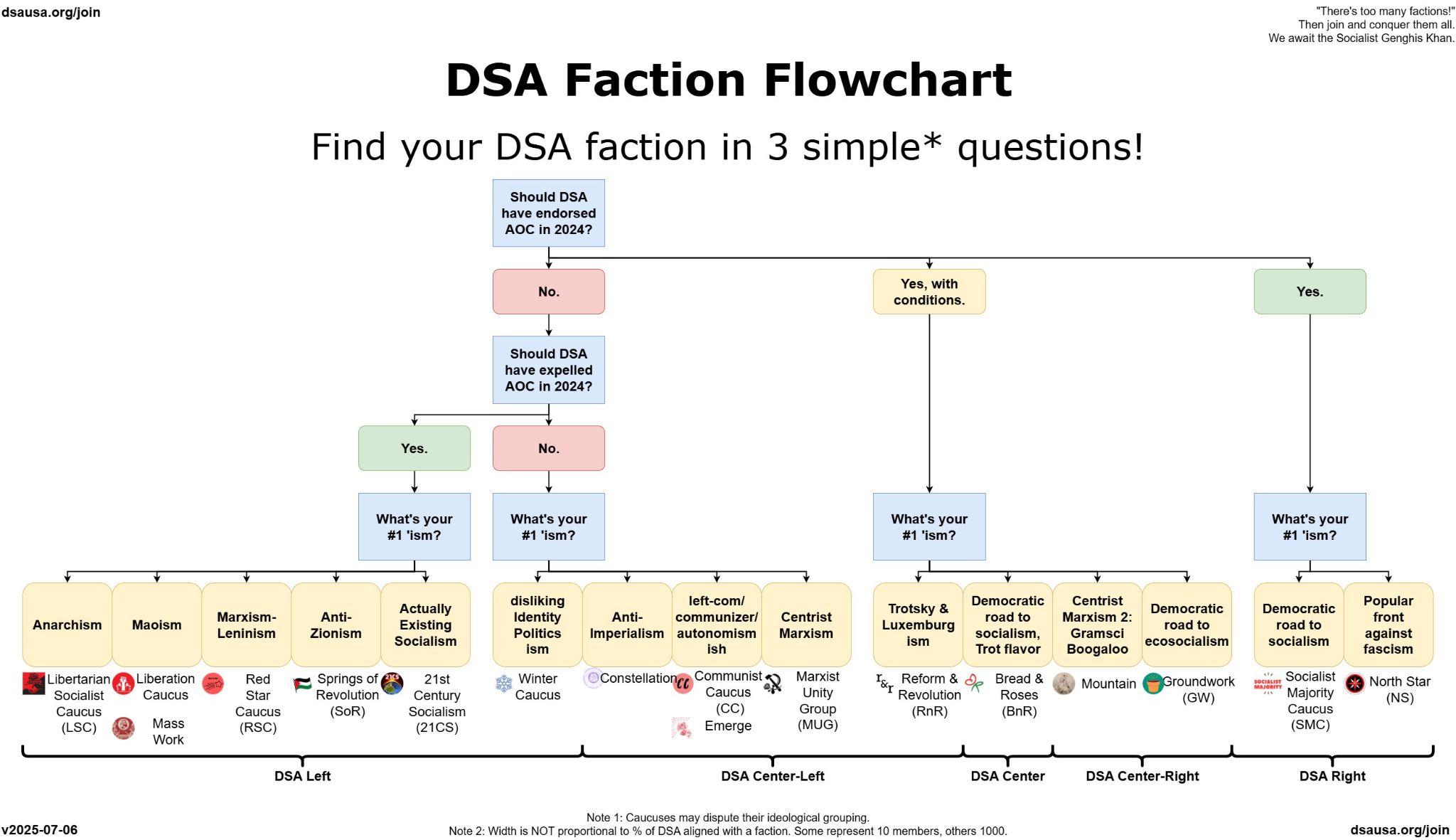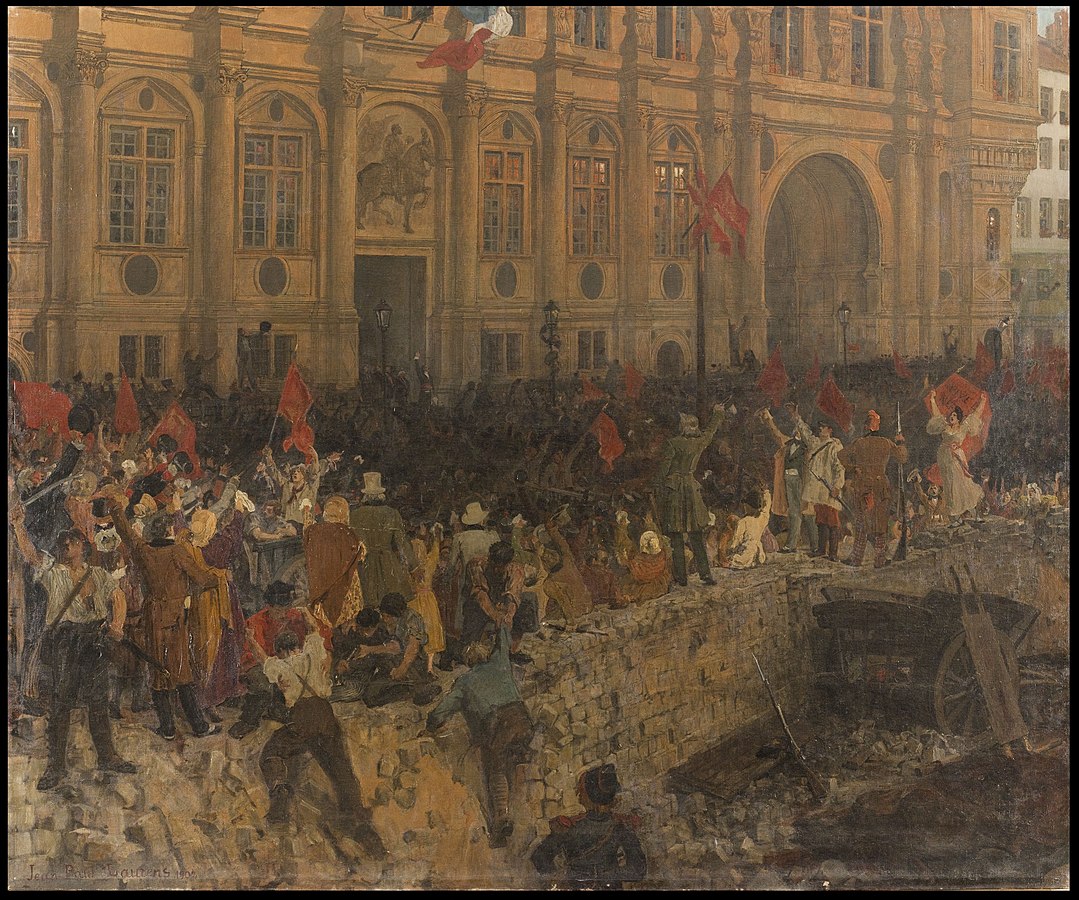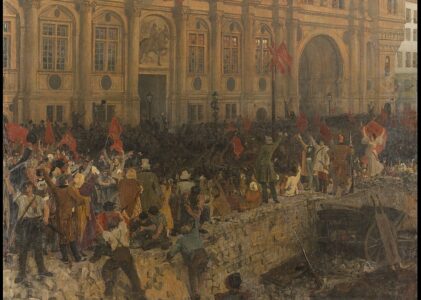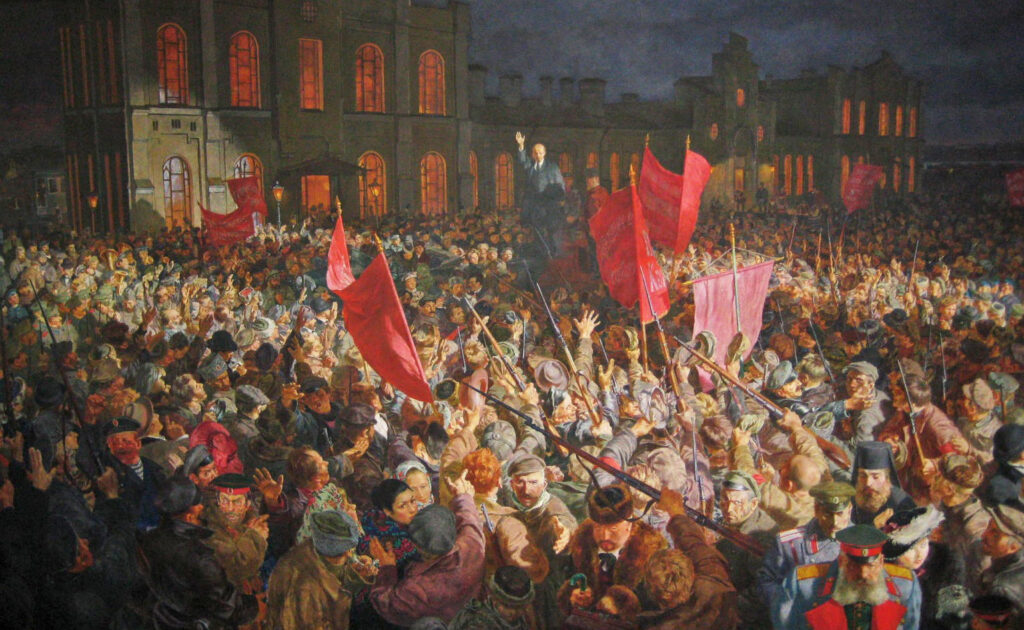Leaving the State of Siege (The Left Has Become Too Stale)
László Molnárfi
I. Unity Conference
There should be a conference organized for socialist revolutionaries to unite with consensus decision-making against reformism which dominates the Left across the 32 counties. All those who engage in the Unity Conference pledge to oppose the tactics and strategies of the leadership of People Before Profit, believing these to be ineffective at gaining the trust of the working masses and their exact position on Left-Government to veer too far into reformism. It should also be accepted that unity can only be achieved within pre-existing political centers, forming a Plan A, and a Plan B, the former being the amendment of the Communist Party of Ireland’s (CPI) constitution to allow for diverse socialist revolutionary thought, followed by merging as one, or multiple, internal faction(s) within it, and the latter being enjoinment to People Before Profit (PBP) as one, or multiple, internal opposition faction(s). As an aside, there should be a provision made for an as-of-yet-unknown ‘third-way solution’ as well at this conference. Other necessary preconditions for attendance with a delegation should be an interest in unity, a belief that freely-elected workers’ councils are the basis of the socialist/communist mode of production, and respect for multi-tendency socialist pluralism.
II. Plan A
Genuine students of Marx should organize themselves in a Communist Party. A merger of disparate revolutionary socialist groupings into the CPI would enjoin them to a pre-existing ecosystem, freshen this ideological center for Marxism and revitalize the movement by counterbalancing the soft-left bloc organized by PBP’s leadership. The aforementioned will weaken, divide and confuse the Communist movement; the primary task at hand is to dislodge its position as radical left, expose its liberalism and substitute it for revolutionary politics which can capture the imagination of the working-class.
Why a merger? If PBP represents one well-resourced political center, with its Horizon Magazine, Rupture Media and Rebel News, Marxism Festival, Irish Marxist Review, and so on, then CPI represents another, with its Connolly Books, Connolly Festival, the Socialist Voice, alongside participation in diverse campaigns for both, such as INL and PANA, anchoring into Irish political life. This is a split on socialist-reformist and socialist-revolutionary lines. There is a convergence around these orbits, loci of the activity of the working class, acting as hubs of diverse activity, representing social forces which are already-in-motion. Political actors which are outside of these two orbits are doomed to remain on the sidelines of history.
Therefore, Communists with organic ties to communities, including platformist anarchists and Socialist Republicans, rather than trying to reinvent the wheel should organize within (or at the very least close to) these groups, joining one or the other depending on whether Plan A or Plan B is employed, and then openly-polemicising lively factions (if necessary) from which Left and Right deviations will demarcate themselves, each with their own energetic media apparatuses, opinions and activities.
If PBP is the broad-front of the soft-left, why should CPI not be the broad-front of the hard-left? The CPI’s constitution should be amended accordingly[1], in line with the recognition that the historical moment demands it, being in a position of low class consciousness, combativity and theoretical output, rather than the midst of the 1917-1922 Russian Civil War which necessitated a stricter approach. It is currently too hierarchical, strict and top-down. Of course, there should be, in addition to diversity of thought via the right to factions, a view to synthesize, with a single publication used for open debate which guarantees minority rights, alongside the party programme and joint activities arising from it. In this party programme, the rule of workers’ councils and the socialist pluralism within them should be highlighted as a point of unity. All this would open the possibility of unseating striated dogmas, easing the path-dependent rigidity of prevailing semiotically-sealed discourses, and engaging new signifiers in flux towards a 21st century revolutionary socialist movement… bestowing upon it wings for a great flight into the unknown towards becoming-revolutionary[2], overcoming its Freudian repetition-compulsion of the traumatic past, ceasing the overdriven paranoiac-machine, leaving the ‘state of siege’ mentality. This mentality that poisons the life-blood of the Communist movement is a result of the disintegration of the 1917 October Revolution, a great tragedy, when the collective will of tens of millions to build a better world collapsed into centralized despotism. We are haunted by 1921 Kronstadt, the failed 1918-1923 German Revolution and the 1936-1938 Great Purges. Unless we can overcome this paranoia which leads to stale dogma, we will remain on the margins of political life. Let a hundred flowers blossom, let a hundred schools of thought contend; release the pressure valve, ease the tension, let debate, organic initatives and their community leaders mushroom across the country united within a single organization.
Reflections on the State of Siege
As Gilles Deleuze put it in his “Letter to Harsh Critic” from 1973, there is an “innate spitefulness of people who come from the militant left. […] They specialize in all forms of carefully calculated animosity, in greeting anybody, present or absent, friend or foe, and anything they say, with aggressiveness and put-downs. They don’t want to understand people, but check them over”. Why does this seemingly universal experience of the Left hold true?
This is nothing more than a paranoiac machine at work. At the outset, it arises from the history of the Left itself, which is stuck in a state of siege. The 1917 October Revolution promised a world based on self-management, and real democracy for the masses, a liberated humankind. However, a tragic series of disagreements, betrayals and lost possibilities have engendered collective trauma. Martov walks out of Congress; Kaplan shoots Lenin; Bukharin opposes Trotsky on the NEP; the Bolsheviks slaughter the Kronstadt Sailors; Trotsky opposes Stalin, Stalin expels and murders Trotsky; and so on and so forth, a series of schisms and splits which create an environment of paranoia, eventually leading to the decay of democracy, which was substituted for by back-room power struggles, culminating in the 1936-1938 purges. The achievements of the Soviet Union were massive, no doubt, but they came with a heavy cost. It is deeply embedded in the psyche of the Left to hunt for dissent in the ranks, as a form of Freudian repetition-trauma, which lives on to this day, having been passed down from history. This meta-model of thought signifies an act of despotic overcoding of consciousness, seeking to halt differentiation, forming the core of the paranoiac machine, which will clamp down on dissenting voices wherever it may find it.
If Marxist ideology is interpreted in a strict sense, then a kernel of dogmatism arises under the guise of dialectics. “One divides into two” for instance, the Maoist interpretation of dialectics, suggests that social reality inescapably contains a “proletarian” and a “bourgeois” line. This line of thinking was entrenched in the Soviet Union following debates in the 1920s, having defeated the dissenting philosophical tendencies which promulgated a more humanistic Marx, in tandem with the onset of the Thermidorian reaction within the State, which clamped down on opposition. In other words, there is a fixed truthhood and falsehood, which, in turn, provides the intellectual justification for the suppression of dissent, by an ever-narrowing logical sequence of “correct” decisions, and at the same time, an ever-narrowing seat of power, which eventually concentrates in the hands of a single person. In the 1960s, the Soviet apparatchiks brought this tendency to its natural conclusion, by branding dissenters as mentally ill – after all, they do not hold the sole rational line of the Party – and forcibly institutionalizing them in psych wards. Notably, it is the Trotskyist organisations in the 21st century that accentuate this tendency to its extreme, for the sole reason that they were the vanquished, hunted and killed, and this is thus deeply ingrained within their political culture, an all-encompassing paranoia which is now turned inside-out in their praxis.
Should the Irish Left, which are run by various forms of Trotskyism, in its current state, produce a successful revolutionary movement, they will re-create this same despotic image of thought, and crush alternative forms of thinking, betraying the Revolution once again, and materialize a despotic State machinery hundred-fold worse than whatever oppressive apparatuses the liberal democrats can conjure up in defense of Capital.
Marxism-Leninism, Trotskyism and Maoism and so on and so forth… these are historically-delimited forms which continue to persist despite the material basis for their content being eroded. Our old differences matter less and less. New differences need to be brought to the fore. This is the tarantula which comes crawling from the town of Taranto and appears on the stage of world-history: when bitten, the victim dances the delirious tarantella in imitation, the poisonous memory of the spider and its necessary exorcism, like the tarantula which also sheds its skin to refresh itself, demanding us to become-tarantula. The vanguard-party in the original Marxist conception appears as the objective-theoretical movement expressing the latest iteration of workers’ class consciousness aimed at present conditions, incorporating lessons of the past and their worked-out syntheses, with new differences coming to the fore as ongoing debates within the Communist movement.
This unity would overwhelmingly be a matter of organizationally formalizing what is already concretized in practice through close cooperation. In fact, in 2012-2013, the Peadar O’Donnell Socialist Republican Forum tried to unite like-minded socialist republicans together in the CPI. Wolves that course through the same forest would be foolish to not declare themselves a pack, united by common activity of nomadic hunting, and raise the call, the howl, which reverberates through the wild, an open invitation: the beckoning to become-wolf. This is not a new idea, since the Mensheviks and the Bolsheviks were organized rather similarly, diverging political centers, one of reform and the other of revolution.
The conclusion of the unity conference with Plan A should be immediately followed by the CPI’s own internal procedures amending the constitution as necessary.
Stages of Historical Development in Ireland (Plan A)
|
|---|
III. Plan B
Should it be that the CPI fails to change its constitution to allow for the development of unity between socialist-revolutionaries, a contingent factor in this plan, the same task still remains, and needs to be executed within PBP.
This is understandably a shocking proposal to those of us who are revolutionary-minded socialists, but there is no alternative. It is one, CPI, or the other, PBP. Historical materialism, this scientific tool, does not deal with abstractions but with real-life conditions. It is not about what we would like to see ideally, but what is a possibility within the trajectory of history hitherto.
The benefits of this approach is that factions (‘networks’), polemics and pluralism are already integral parts of PBP, therefore, no constitutional changes are required. In addition, PBP is a well-resourced political center, also having electoral presence, being a household name with some working-class following and smouldering traces of radicalism which could be sparked and used as the firetorch with which to freshen leadership, adopt a party programme, and once again, stress the rule of freely-elected workers’ councils on the path to socialist revolution. PBP could be compared to the Democratic Socialists of America (DSA), albeit in its early days, whose organizational structure makes it possible to accommodate a wide range of leftist thought, and indeed does so with 17 factions. This ranges from a ‘DSA Left’ to ‘DSA Center’ and ‘DSA Right’ as indicated below.

The task at hand would be to set up a faction which poses a challenge to the PBP leadership, influences the party, and puts it on a firmly revolutionary-socialist path.
The conclusion of the unity conference with Plan B should be immediately followed by participants signing up to PBP and forming a network, or networks, of their own.
Stages of Historical Development in Ireland (Plan B)
|
|---|
IV. The Critique of PBP’s Leadership
The dire times we are in demands that the Left get serious about power. This means respecting socialist principles but being flexible in tactics and strategies. Due to the leadership of PBP, the Left is stuck in a moralistic dead-end, unable to anchor within the working-classes. Let me quote a report from a panel discussion on ‘confronting the far-right’ held on the 20th of July 2025:
Interesting and timely discussion today about how we confront the far-right in Ireland today. A lot to think about, especially what community means and how that has changed over the years. We can actually build something new, different and emancipatory for everyone, rather than trying to return to a past that never existed anyway.
This kind of language epitomizes the disorientation of the PBP leadership. Detached from class struggle, they spin vague, academic abstractions that resonate only within NGO circles and university seminar rooms. This is just borrowed liberal rhetoric, imported wholesale from U.S. identity politics. In this instance, Ireland takes its place amongst the ‘Empire’, just another country with a white supremacist past that needs to be ruptured with. Their removal of themselves from culture is reflected in their removal from working-class communities, and ultimately, from history itself. ‘Ireland is welcoming’, a deeply rooted sentiment that could serve as a cultural touchstone, is ignored in favor of narratives that erase Ireland’s specific history. In fact, for them, the past has ceased to exist altogether. A-historicism as praxis! This approach reeks of being a British import to Ireland from the 1970s, an alien product, which serves to displace home-grown Irish socialism.
There are many symptoms. Aside from (1) a-historicism as praxis, they (2) lack a solid class-first politics, (3) use too little universalist class-based language, (4) speak to people using ‘woke’ finger-wagging moralistic turns of phrases and engage in identity politics in a way that is too external to the class struggle, (5) have a tailist[3] frenetic focus instead of tackling widely-felt issues due to a lack of a programme, (6) are weak on the issue of sovereignty and republicanism, (7) disconnected from communities, prefer performative activism to substance, and thus wreck organic movements (8) are devoid of pragmatic policies and (9) constantly present themselves as victims, rather than from a position of strength… not to mention, (10) their position on Left Government, which leads down a reformist cul-de-sac of tailing capitalist parties.
This is counterproductive, and sullies the brand of the Left amongst working-class communities, pushing them further to the Right. Self-reflection is direly needed. It is precisely because we live in a time when racial minorities and trans people are under threat, gender-based violence is on the rise and the working-class is suffering at the hands of austerity that the optimal tactics and strategies should be chosen which catapult the Left into power, following which we will implement policies tackling all issues. Aesthetics, themes and presentability matter. Focus is important. This includes being smart about the language we use, striking the right balance of air-time between social and economic issues, and finally, tying our politico-cultural efforts to Irish history to fight the class war intertwined with the culture war… all this is a question of fine-tuning, calibration, simply an optimization problem, like in engineering! In earlier articles, 7th of June 2025 (Red Network, The Machinic Enslavement of Programmatic Nihilism) and 30th of June 2025 (Horizon Magazine, Revolutionary and Realpolitik), the stick was bent too far in order to counteract the liberalism of the United Against Racism (UAR) demonstration on the 26th of April 2025, and this risked creating an either-or framing between class and identity, leaving room for class abstractionism, swinging between extremes, hence the cybernetic model, a gradient approach.
A vampire is killed by a silver bullet (and kept away with rows of garlic), a zombie is beheaded by an axe, a ghost is exorcised by holy incantations; what weapon, war-machine, shall we build to oneshot the shapeshifting demon of Capital? As X (formerly known as Twitter) user @solzhenidiot remarked, we cannot just jump up and down and flap our arms to get to Mars. In order to find the correct politics, which will reach the advanced sections of the working-class and trickle onwards to the wider working-class and enact a radical subjectivity, research has to be undertaken. In the United States, the Jacobin conducted valuable research on this topic. One of its conclusions:
Working-class voters like a message based in class and solidarity and don’t like one based in academic jargon about identity, especially when it feels moralistic. The left should fight for racial justice and gender justice. But it should do so within the context of a social democratic message that fights for all working-class people.
The hypothesis is that Ireland will be similar. This hypothesis can be verified by conducting similar studies. After the study is concluded, it can be verified against social reality by putting it into practice.
However, PBP’s leadership seem not interested in power, they want to ‘endlessly critique power’. They will remain forever stuck, doing the same thing over and over again, a Sisyphus politics which clearly does not work. In essence, this a roadblock to the blooming of a genuine socialist revolutionary movement rooted in the working-class.
It is time that those of us on the Left who are serious about this project put aside our differences and become a power bloc of our own. No more appeasement of PBP’s leadership; let us stand on our own two feet. It is an ambitious project, involving the merging of our groups, but history necessitates it. Those who refuse merely reveal that they have not yet adapted to the requirements of social change of contemporary society. Merge, or perish!
V. Annex to Plan A of Draft Amendments to the CPI Constitution
INSERT (After Introduction §3):
“The Communist Party of Ireland recognises the importance of socialist pluralism in the 21st century. It affirms the right of internal factions to organize, debate, and publish within the Party, provided they adhere to democratic procedures and the principles of Marxist unity in action.”
AMEND (Aims and Objectives §4):
FROM
“The Communist Party of Ireland aims for the ending of the capitalist system and for building socialism, a social system in which the means of production, distribution and exchange are publicly owned and utilised for the benefit of the whole people.”
TO
“The Communist Party of Ireland aims for the ending of the capitalist system and for building socialism, a social system in which the means of production, distribution and exchange are publicly owned and utilised for the benefit of the whole people, through the establishment of freely-elected workers’ councils as the foundation of a future socialist Ireland.”
AMEND (Aims and Objectives §6.1):
FROM
“strive for cooperation with all other sections of the labour movement to win the majority of the people for national liberation and socialism;”
TO
“strive for cooperation with all other sections of the labour movement, including revolutionary socialists, platformist anarchists, and socialist republicans, to win the majority of the people for national liberation and socialism, respecting ideological diversity within a revolutionary framework;”
INSERT (After Organisation and Structure §9):
“The CPI affirms the right of members to form open internal tendencies, platforms, or factions to advocate for distinct theoretical, tactical and strategic perspectives. These groups may publish factional media, hold meetings, and publicly debate positions, as well as have a range of activities so long as they operate within the framework of Party discipline and support the general aims of the Party. A Party-wide platform shall be established for open, comradely polemic among factions. The Party will strive to synthesize the best ideas from all factions into a coherent revolutionary programme, maintaining unity in practice while fostering ideological diversity.”
INSERT (After Organisation and Structure §12):
“The Party acknowledges that democratic centralism in the 21st century must include mechanisms for speedy coordination, constructive disagreement, and a flexible yet principled approach to political unity.”
AMEND (Membership §34):
FROM
“No member of the party may be a member of another political party. Former members of other political parties or organisations require for admission to the Party, in addition to the above, the recommendation of three members of at least five years’ Party standing. Such applicants may be admitted only through a primary Party organisation (i.e. a Branch) and the endorsement of the NEC is essential.”
TO
“No member of the party may be a member of another political party.”
INSERT (After General §57):
“In line with evolving conditions of class struggle and historical necessity, the CPI commits to reviewing its constitution and internal culture at each National Congress with input from all organized tendencies within the Party.”
- Please consult “V. Annex to Plan A of Draft Amendments to the CPI Constitution“. ↑
- All becoming-xyz is Deleuzo-Guattarian terminology. The author likes to play with concepts. It is fun. ↑
- For instance, PBP supports the Terence Wheelock protests but then poses with banners stating “We stand with Gardaí” without challenging this liberal conception when it comes to anti-racist work (19th of August 2025 / PBP Dublin South West / https://www.instagram.com/p/DNgIFiesx6U/). ↑



